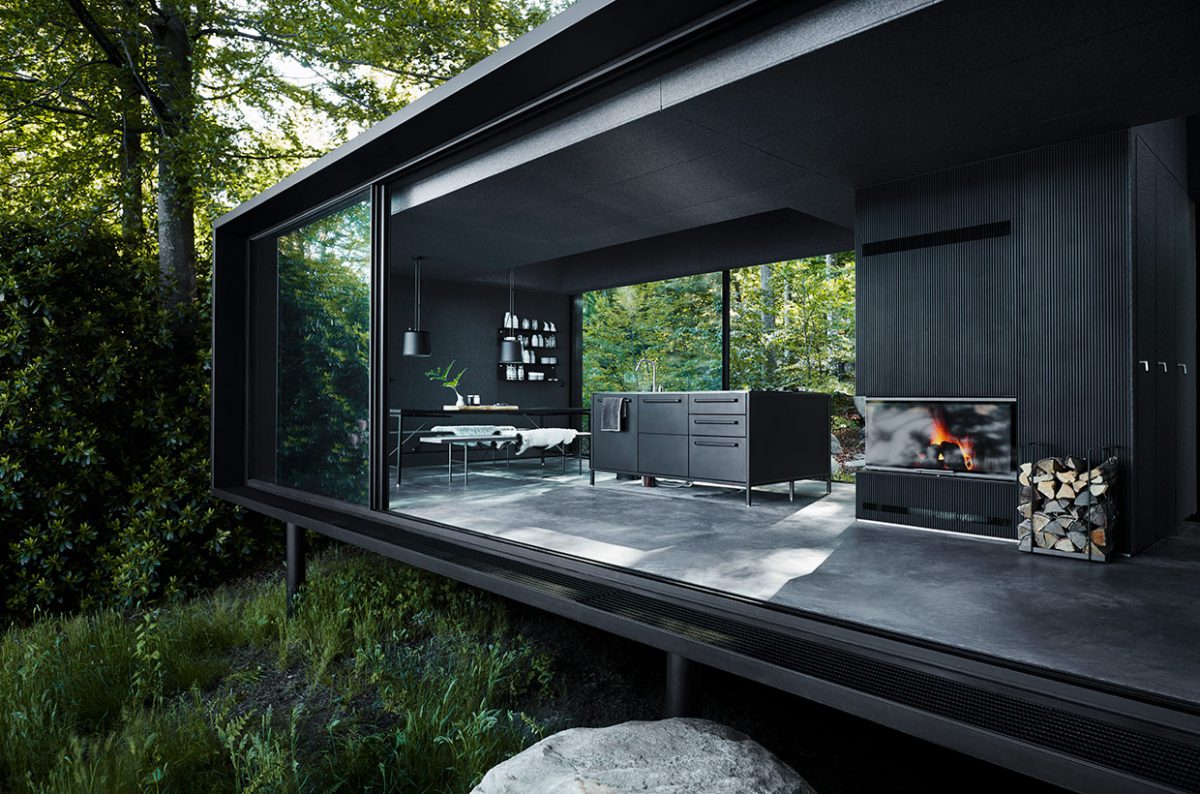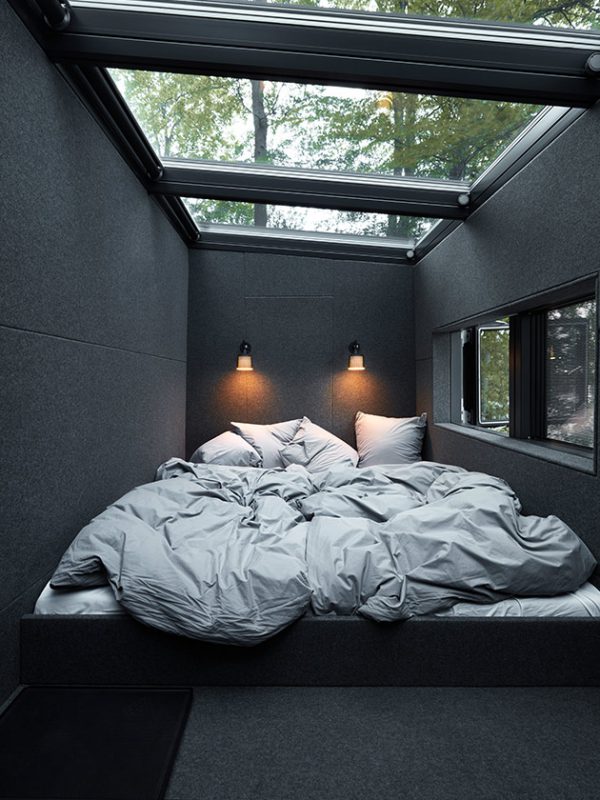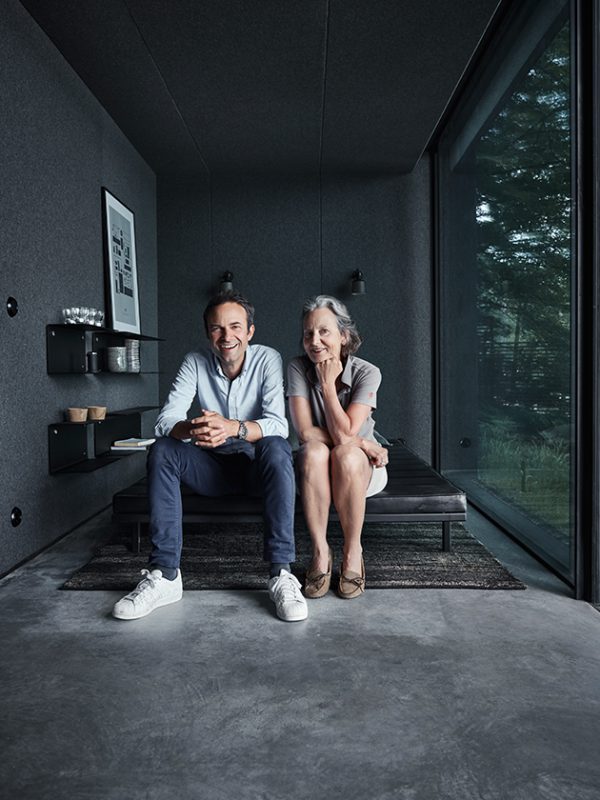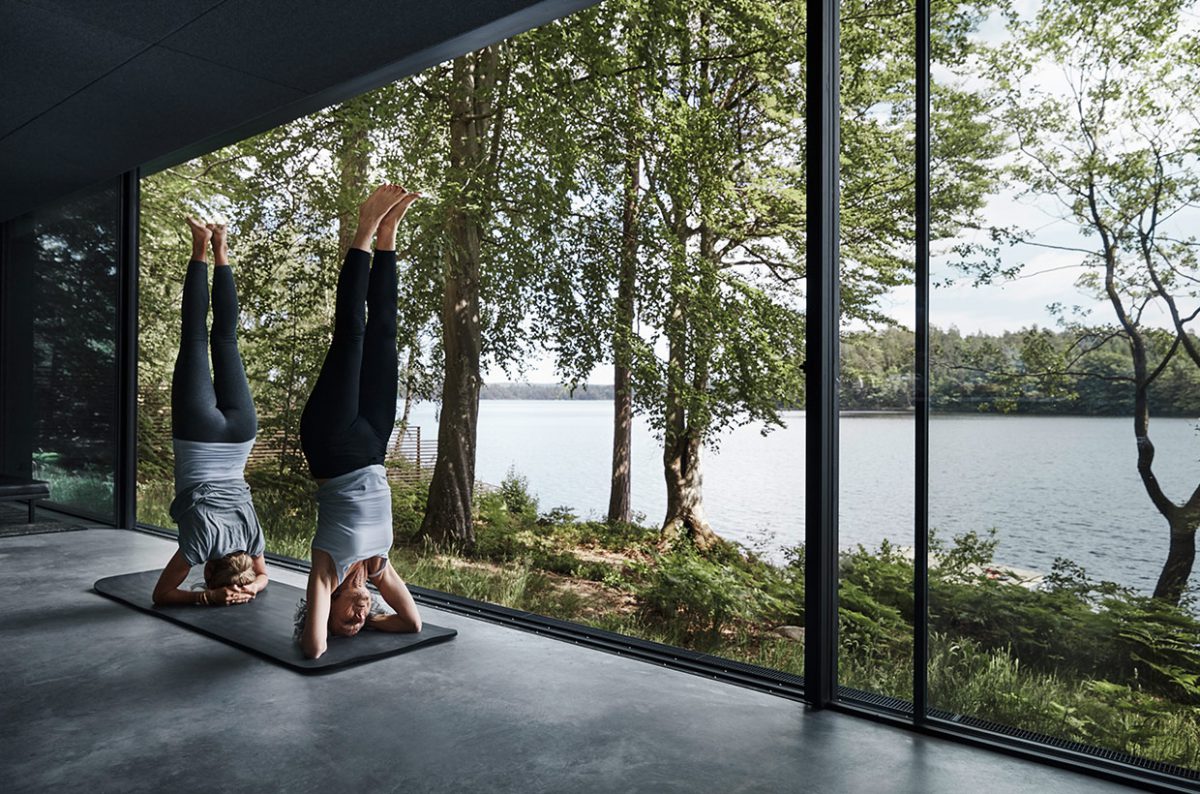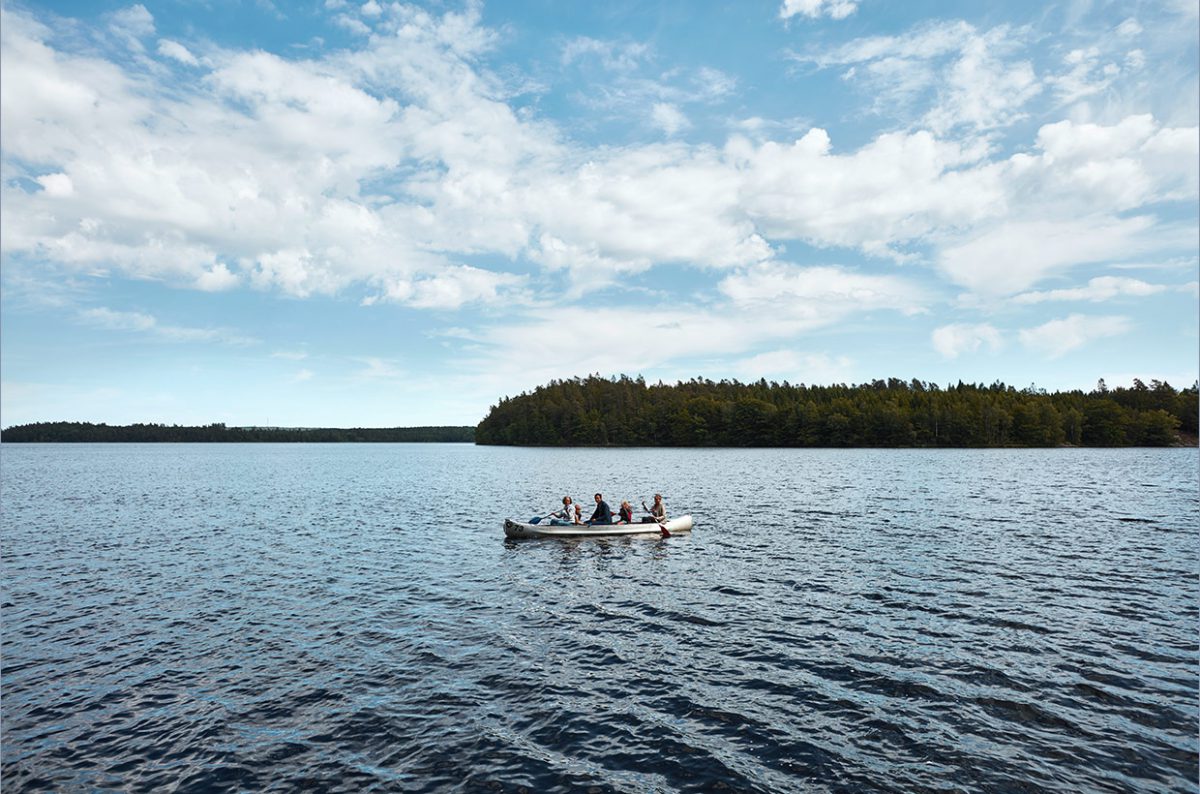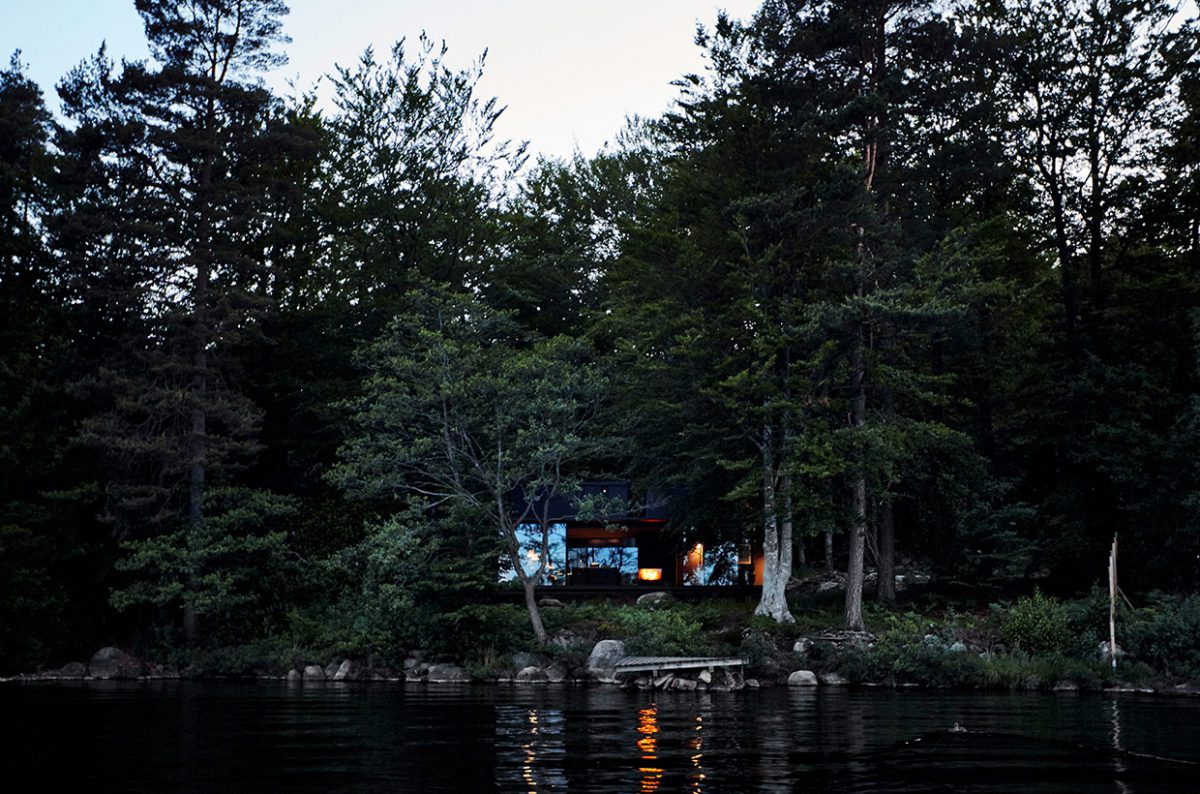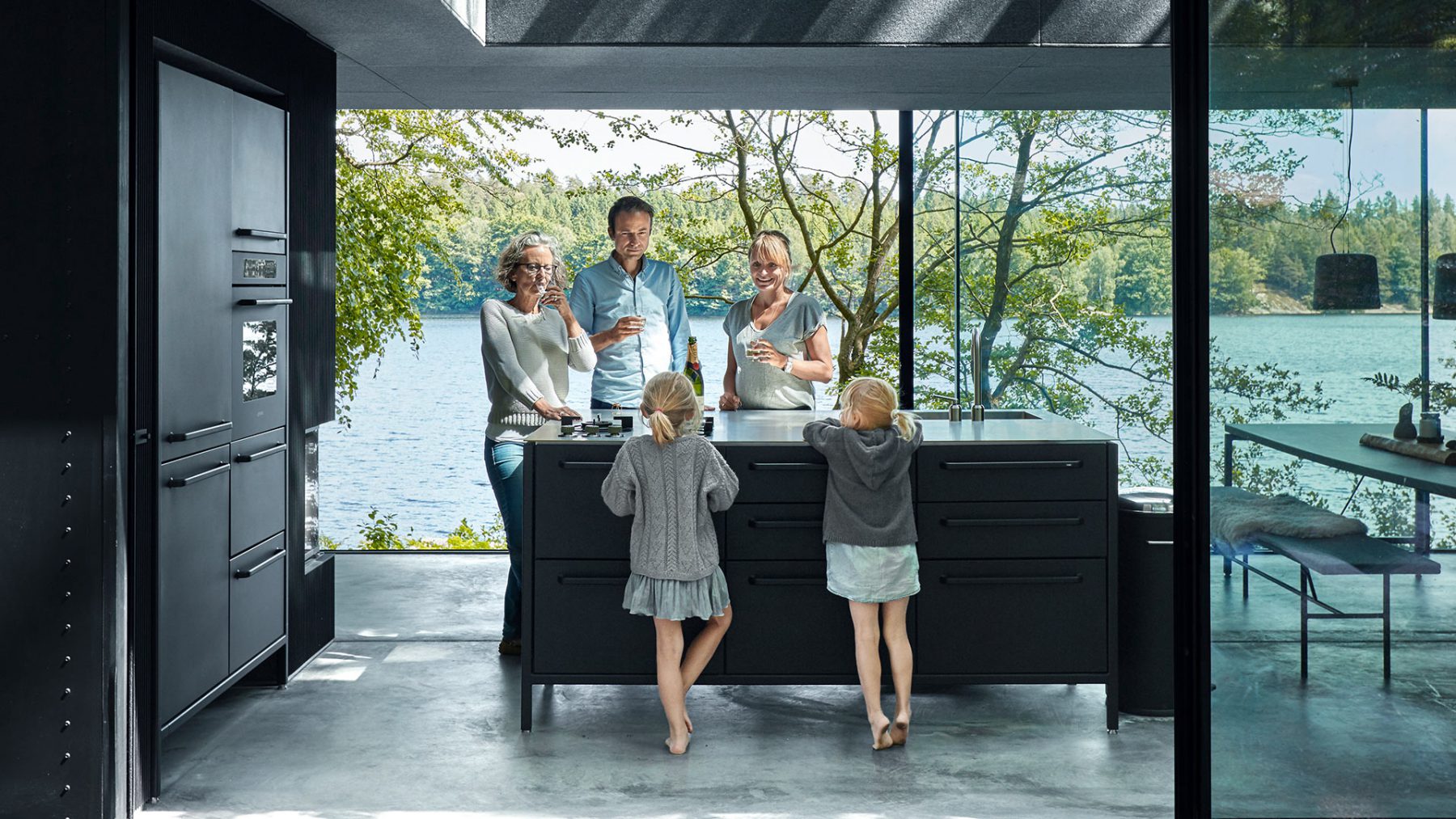Clean lines – a design tradition by Steffi Kammerer | 2nd September, 2016 | Personalities
It all started with a metal pedal bin. Today, the VIPP product portfolio ranges from a dishwashing brush to a prefabricated house. The latter is the brainchild of CEO Kasper Egelund, the grandson of the company’s founder. Like every Vipp product it is straightforward and elegant, every detail well thought-through. Yet the Danish company’s appeal is not only rooted in its first-class designs, but also in the shared vision and cohesion of the owners’ family.
The handover was elegant and clear-cut, just like the products made by the Vipp company. When her son, who had been building up the U.S. business in New York for a few years, returned to Copenhagen, they had a little party for him. He was giving a short speech to the employees, when Jette Egelund, his mother – and until that time his boss – passed him a note. It said: “Now it’s your turn.” That was roughly four years ago, and since then Kasper Egelund has been the company’s CEO. Jette had no problems letting go. Quite the contrary, she says. She is happy to be able to witness the success of the next generation in her lifetime.
“A house does not have to be big. Just great.” Kasper Egelund
The young company boss had brought one particular idea with him from New York, developed in one of those scorching summers spent in Manhattan. That was when he had longed for tranquility, nature, and for a small house in the countryside, one that should fall from the sky, so to speak, perfectly furnished. “It doesn’t have to be big. Just great,” he thought. In his family, people don’t just dream about things, they turn their dreams into reality. And so, we meet one fine morning on the shore of a secluded Swedish lake. This is where the Vipp shelter was erected in November 2014, a walk-in work of art for potential buyers. A 25-ton prefabricated house on steel pillars with felt-clad walls. Sunlight shines through skylights onto the stove, the ceiling-high windows can be opened up towards the water, like sliding doors. Kasper spent more than a year looking for the perfect location. Then a truck with a crane took the house to this site. “It’s a little bit like buying a car or a boat,” he says. “Everything is already fully installed.” He also refers to living in a house like this as “five-star camping.”
“I stay in the background. These days, it is Kasper who is in charge.” Jette Egelund
The inside, too, boasts Vipp products. That means top quality, stripped back to the essentials, and exclusivity – even a toilet brush costs 165 euros in stores. Compared to that, the towel hooks for 89 euros are almost a bargain. Production takes place all over the world, wherever the best suppliers in their field are located. The tableware comes from China, the towels from Portugal, the fittings from Italy, and the windows from Switzerland. It takes time before a Vipp article is launched. The item must not only make the grade esthetically, but also in daily use, says Kasper. Moreover, he adds, “It has to go with the year 2016. We do not want retro products.”
“The design has to go with the year 2016. We do not want retro products.” Kasper Egelund
Vipp’s company history started with a pedal bin designed by Jette’s father Holger Nielsen. When he died in 1993, the product was only that – a garbage receptacle, albeit one that was selling well, especially for doctor’s offices and hospitals. Who would have thought that it would one day be exhibited at the Museum of Modern Art in New York – next to design classics by Charles and Ray Eames, Arne Jacobsen and Mies van der Rohe? It was Jette Egelund who recognized the bin’s potential, and who took her father’s trashcan to international design fairs and managed to get it into the Conran Shop in London. She was the one who would make the small Danish company famous the world over. Jette was in her mid-40s and a social worker in Copenhagen when her father died. Her mother and sister had no interest in taking over the company. Jette decided to give her life a totally new direction, and bet everything on the little bin. She commuted between Copenhagen and Vipp’s industrial premises on the other side of the country, slept in her old bedroom in her mother’s house, learned to weld, and hardly thought about anything but Vipp’s future. It wrecked her marriage and she ran out of money. In order to earn a living, she sang in the church choir on weekends. “That was the toughest time in my life,” says Jette. But she never thought of quitting. “No, never. I loved it from the very first day. Being my own boss, making the decisions.” At that time Vipp’s turnover was less than one million Danish kroner a year. Today it is about 100 million. “Yes, the figure has increased a hundred fold,” she says, calm and self-assured.
“What we have achieved would never have been possible without my children.” Jette Egelund
Her children and their particular expertise have played no small part in the company’s success, says Jette. Sofie studied graphic design and Kasper studied business, and both started working at Vipp straight out of college. Jette already transferred a third of the company to each of her children many years ago. “I just thought, they will get it one day anyway. On top of that, they both worked so hard,” she says. “What we have achieved would not have been possible without my children.”
When it came to the difficult decision of deciding who would lead the company in her stead – effectively having to choose between her son and her daughter – she also found a solution. Kasper is Vipp’s CEO, while Sofie now looks after the company’s business in the United States. This transition was not easy, as Jette says herself, but the family managed to pull it off. They come together for board meetings in Copenhagen four times a year. For the last few years, a lawyer has been present in order to ensure that mother, son and daughter relate to each other on a professional level, rather than as family members. The three draw a clear distinction: In the company they meet each other as colleagues, family life happens outside the workplace. During the summer holiday, all five grandchildren stay with Jette in the family vacation home on Denmark’s west coast.
The shelter has so far not found a buyer, but a dozen or so potential customers from around the world have traveled to the remote location on the Swedish lake. “This here,” says Kasper pointing into the living room, “is not an impulse purchase.” After all, the small house costs 485,000 euros, not including transportation. But for that price the beds come already made, and there are dishes in the cupboards. The project is unlike any other product that Vipp has ever launched, says Kasper. Four years ago, when Vipp started producing kitchens – which also command a handsome price – it only took four months for the first one to be sold. With this shelter, on the other hand, potential buyers must first scout out a suitable plot of land to put it on. In the meantime, Kasper dreams of finding the perfect location for another shelter. Maybe on a rooftop in New York.
